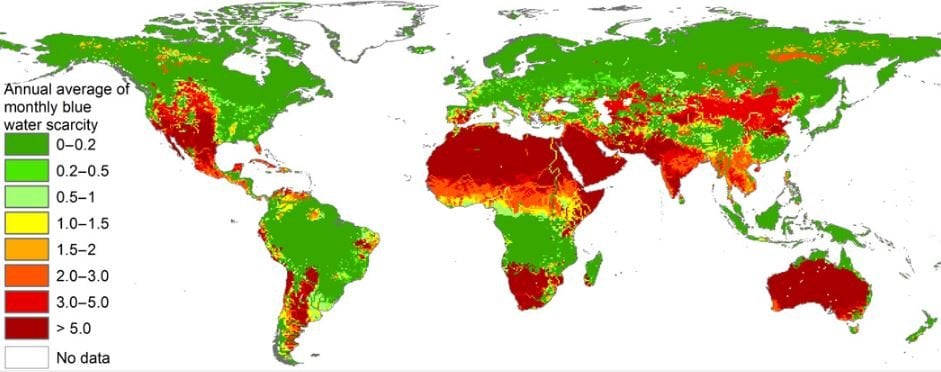Article sourced from EcoWatch
A research article written by the University of Twente, in the Netherlands reveals “freshwater scarcity is increasingly perceived as a global systemic risk” and they find that around two thirds of the world’s population face water scarcity at least one month of the year, with around half of those 4 billion people living in India or China with millions affected in Bangladesh, Nigeria, Pakistan and Mexico.
The study even highlights water scarcity in the US, in areas such Texas, California and Florida.

Water scarcity affects 4 billion
“High water scarcity levels appear to prevail in areas with either high population density (for example, Greater London area) or the presence of much irrigated agriculture (High Plains in the United States), or both (India, eastern China, Nile delta). High water scarcity levels also occur in areas without dense populations or intense irrigated agriculture but with very low natural water availability, such as in the world’s arid areas (for example, Sahara, Taklamakan, Gobi, and Central Australia deserts). Water scarcity in the Arabian Desert is worse than that in other deserts because of the higher population density and irrigation intensity. In many river basins, for instance, the Ganges basin in India, the Limpopo basin in Southern Africa, and the Murray-Darling basin in Australia, blue water consumption and blue water availability are countercyclical, with water consumption being highest when water availability is lowest.” source
According to the study, meeting humanity’s increasing demand for freshwater and protecting ecosystems will be one of the most demanding and important challenges of this century. And, preventative measures will include capping water consumption by river basins, increase usage efficiencies and better sharing of fresh water resources.


